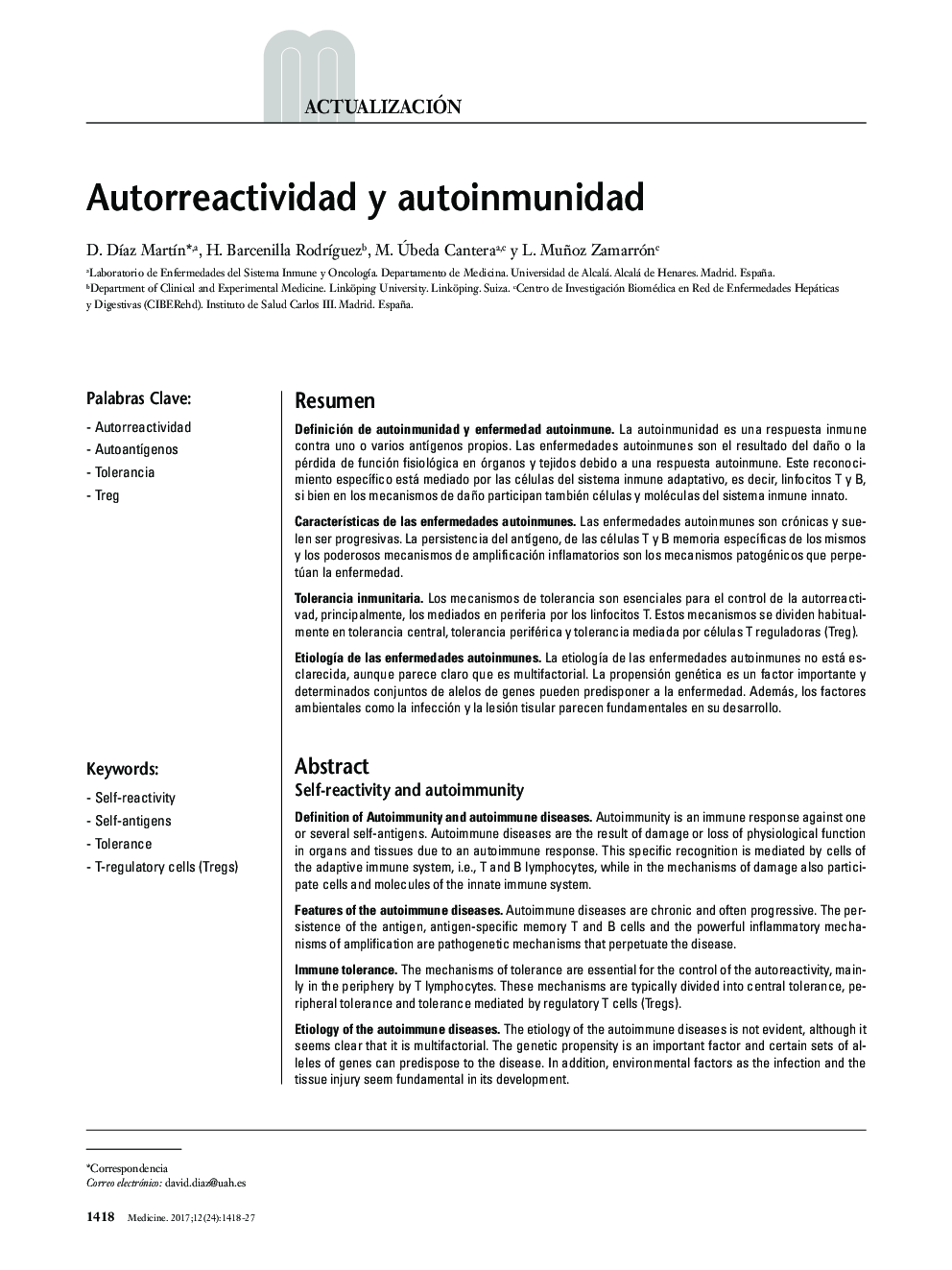| کد مقاله | کد نشریه | سال انتشار | مقاله انگلیسی | نسخه تمام متن |
|---|---|---|---|---|
| 5681539 | 1408841 | 2017 | 10 صفحه PDF | دانلود رایگان |
ResumenDefinición de autoinmunidad y enfermedad autoinmuneLa autoinmunidad es una respuesta inmune contra uno o varios antÃgenos propios. Las enfermedades autoinmunes son el resultado del daño o la pérdida de función fisiológica en órganos y tejidos debido a una respuesta autoinmune. Este reconocimiento especÃfico está mediado por las células del sistema inmune adaptativo, es decir, linfocitos T y B, si bien en los mecanismos de daño participan también células y moléculas del sistema inmune innato.CaracterÃsticas de las enfermedades autoinmunesLas enfermedades autoinmunes son crónicas y suelen ser progresivas. La persistencia del antÃgeno, de las células T y B memoria especÃficas de los mismos y los poderosos mecanismos de amplificación inflamatorios son los mecanismos patogénicos que perpetúan la enfermedad.Tolerancia inmunitariaLos mecanismos de tolerancia son esenciales para el control de la autorreactivad, principalmente, los mediados en periferia por los linfocitos T. Estos mecanismos se dividen habitualmente en tolerancia central, tolerancia periférica y tolerancia mediada por células T reguladoras (Treg).EtiologÃa de las enfermedades autoinmunesLa etiologÃa de las enfermedades autoinmunes no está esclarecida, aunque parece claro que es multifactorial. La propensión genética es un factor importante y determinados conjuntos de alelos de genes pueden predisponer a la enfermedad. Además, los factores ambientales como la infección y la lesión tisular parecen fundamentales en su desarrollo.
Definition of Autoimmunity and autoimmune diseasesAutoimmunity is an immune response against one or several self-antigens. Autoimmune diseases are the result of damage or loss of physiological function in organs and tissues due to an autoimmune response. This specific recognition is mediated by cells of the adaptive immune system, i.e., T and B lymphocytes, while in the mechanisms of damage also participate cells and molecules of the innate immune system.Features of the autoimmune diseasesAutoimmune diseases are chronic and often progressive. The persistence of the antigen, antigen-specific memory T and B cells and the powerful inflammatory mechanisms of amplification are pathogenetic mechanisms that perpetuate the disease.Immune toleranceThe mechanisms of tolerance are essential for the control of the autoreactivity, mainly in the periphery by T lymphocytes. These mechanisms are typically divided into central tolerance, peripheral tolerance and tolerance mediated by regulatory T cells (Tregs).Etiology of the autoimmune diseasesThe etiology of the autoimmune diseases is not evident, although it seems clear that it is multifactorial. The genetic propensity is an important factor and certain sets of alleles of genes can predispose to the disease. In addition, environmental factors as the infection and the tissue injury seem fundamental in its development.
Journal: Medicine - Programa de Formación Médica Continuada Acreditado - Volume 12, Issue 24, January 2017, Pages 1418-1427
